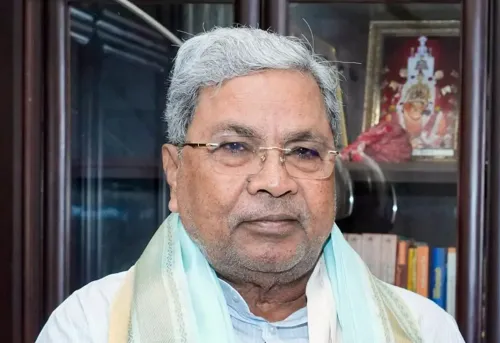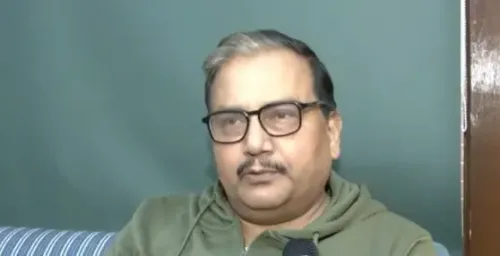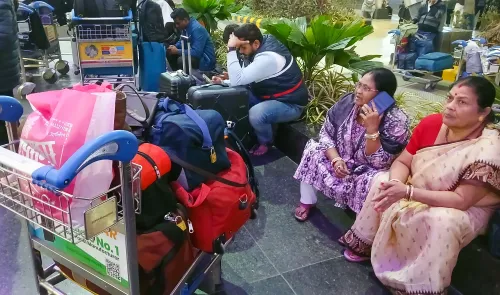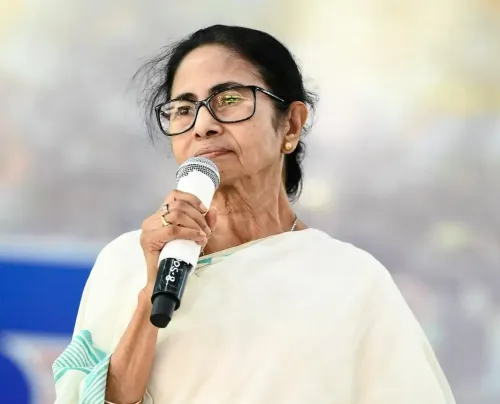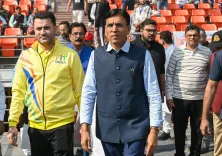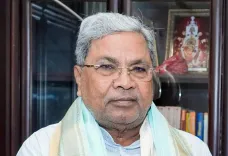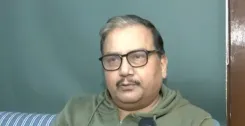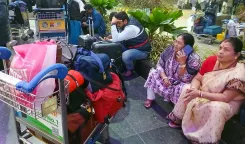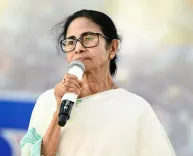Dr. Sujata Recalls the Tragic Pahalgam Attack That Claimed Her Husband
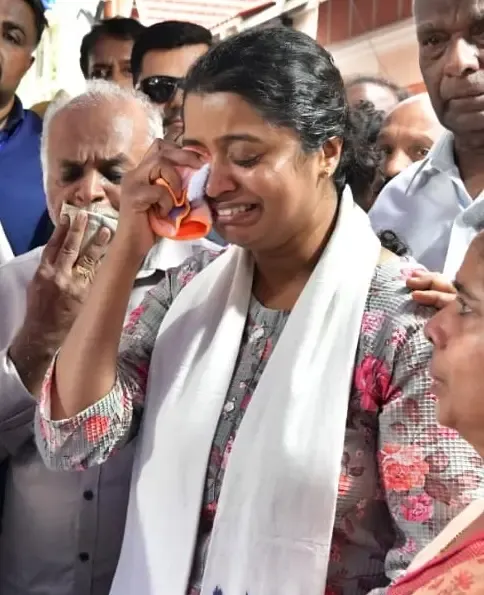
Synopsis
Key Takeaways
- Dr. Sujata witnessed her husband's murder during a terror attack in Pahalgam.
- The family was vacationing with their toddler when the attack occurred.
- The incident raises questions about terrorism's impact on innocent lives.
- The need for government action against terrorists is emphasized.
- Community solidarity is highlighted amidst the tragedy.
Bengaluru, April 24 (NationPress) Dr. Sujata, widow of the late Bharat Bhushan, a victim of the Pahalgam terror attack, shared the harrowing experience of witnessing her husband shot dead before her eyes. "Even as I pleaded, telling them we have a toddler and to spare my husband, they shot him,” she recounted.
Speaking to the media at Sundarnagar locality in Mathikere, Bengaluru, she described the horror with tears streaming down her face.
“We traveled to Kashmir on April 18. On the final day of our trip, April 22, we visited the Baisaran meadows in Pahalgam, often dubbed 'Mini Switzerland'. We were thrilled to explore this beautiful area. We rode horses for about three to four kilometers to reach Baisaran, where we found ourselves in a sprawling grass field, playing with our toddler. There were tents set up for tourists to don traditional Kashmiri attire and take photographs. After our photoshoot, we were getting ready to head to lunch.
"At approximately 1:45 p.m., we heard gunfire. Initially, we thought someone was firing to scare animals. But as the sound of gunfire approached, we realized it was an attack. My husband and I took cover behind a tent with our child. One of the terrorists confronted an elderly man hiding nearby. In Hindi, he questioned, ‘How can you be so happy here when our children are dying over there? How can you enjoy time with your children?’ The elderly man asked how he was responsible for the situation. Without answering, the terrorist shot him dead and kicked his body aside, then fired four or five more shots into him.
“In that moment, my husband tried to reassure us, saying everything would be alright. The terrorist then came toward us. I held my son tightly and raised my hands, pleading for mercy, explaining that we had a small child. Ignoring our desperate pleas, the terrorist shot him in the head. I instantly knew he wouldn’t survive. I didn’t dare lift my head; I just clung to my son, determined to protect him. As soon as the terrorist moved away, chaos erupted, and people began to flee. I grabbed my son and ran, witnessing piles of dead bodies as we escaped. I eventually found a horse and rode it to the CRPF camp,” Dr. Sujata recounted.
Nanjundappa, Bharat Bhushan’s uncle, remarked, “Bharat was my sister’s son. I’ve known him since he was a child. He was a lively and compassionate individual. During the summer, he traveled to Kashmir with his wife and young child for a vacation. Suddenly, the terrorists attacked. Bharat’s family had begged them not to shoot, stating he had a three-year-old child. Yet, they heartlessly killed him.”
“His wife is a doctor at M.S. Ramaiah Hospital, doing exceptional work. I cannot express the depth of this pain. The nation is grappling with terrorism, and the government must take stringent actions against these terrorists. How could they casually kill 26 people? What about their families?” he questioned.
“What will become of Bharat Bhushan’s three-year-old child now? Bharat’s father served as a Karnataka Administrative Service (KAS) officer. He had a brother. Such tragedies must not happen again. The Central government must respond decisively. I believe they have already taken firm actions against Pakistan,” he asserted.
“Pakistan should learn from its neighboring nations, especially India. At 79, I have witnessed Pakistan's actions since Independence — they have consistently been adversarial toward India, and I fail to comprehend why,” he stated.
“The Muslims in Kashmir stand with the Indians. One young Kashmiri carried another victim’s child on his shoulders for 3.5 kilometers. In India, Hindus, Muslims, and people from all communities coexist peacefully,” Nanjundappa noted.


